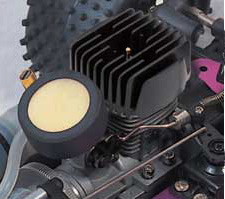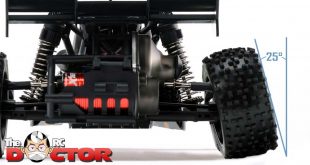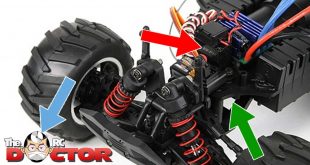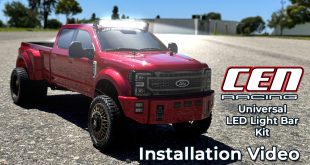
Question:
Hiya Doc,
I have a Smartech Speedy Tiger and I’m looking to install a new engine in it. It gets really hot, especially when I drive it in grass. Can you tell me what’s the largest engine I can put in this car? Anything else I might need to upgrade when I do this?
Thanks,
Zackary
Answer:
Hey Zachary.
The Smartech Speedy Tiger is definitely a good choice if you’re looking for an inexpensive beginner Nitro car. Its $140 price point is extremely attractive to the first time Nitro buyer and should give provide you with quite a few hours of fun-running.
That being said, before I recommend a new engine, let’s look at the first issue at hand – heat buildup. The Speedy Tiger is a 1/10th scale Nitro offroad buggy and will work great in most conditions. Dirt, short grass and even street driving will be the S-Tigers specialty. Get it into taller grass (or anything else that might bog it down) and you’re asking for trouble. The included .15 engine is decent but certainly not designed for anything but free-rolling movement. Once the buggy starts slowing down (due to impaired movement), the clutch will start working overtime, heating up the clutch bell, the engine case and finally the heatsink. Since the car will not be moving very fast (if at all), no air will be flowing over the engine head/heat sink so there will be nothing to help it run cooler. That’s potential issue #1.
The second thing you might check is the condition of the drivetrain. Bound axles, blown out bearings or bend parts can certainly cause the engine to work overtime, also lending to heat buildup. You might give this a look to.
However, if you’re set on getting a new engine, I would suggest a high-quality .15 engine (.12 and .18 engines are available, but you’ll have a better selection of .15 ones). I’m pretty positive that almost any .15 will fit that car, it will just be a matter of lining up the mounting holes. You shouldn’t ‘need’ any new parts to make this engine work, however I’d suggest replacing the spur gear and clutch shoes.
Of course, there is one other option. You’re going to spend approximately $130-$300 on a good, competition-level nitro engine. For close to that same amount, you could almost upgrade to a brand new, HPI or Team Associated 1/10th scale Nitro vehicle. You’ll be getting a much higher-quality product, excellent parts support and something built to withstand a ton of power! Better yet, they’re available in RTR trim for around $300!
In my opinion, I say shop around before purchasing a new engine. You never know…you may be purchasing a whole new car!
The Doc
 CompetitionX CompetitionX is the most up-to-date source for RC Car News, Reviews and Videos for Radio Control. We also have the most comprehensive Manual Database on the web.
CompetitionX CompetitionX is the most up-to-date source for RC Car News, Reviews and Videos for Radio Control. We also have the most comprehensive Manual Database on the web.




